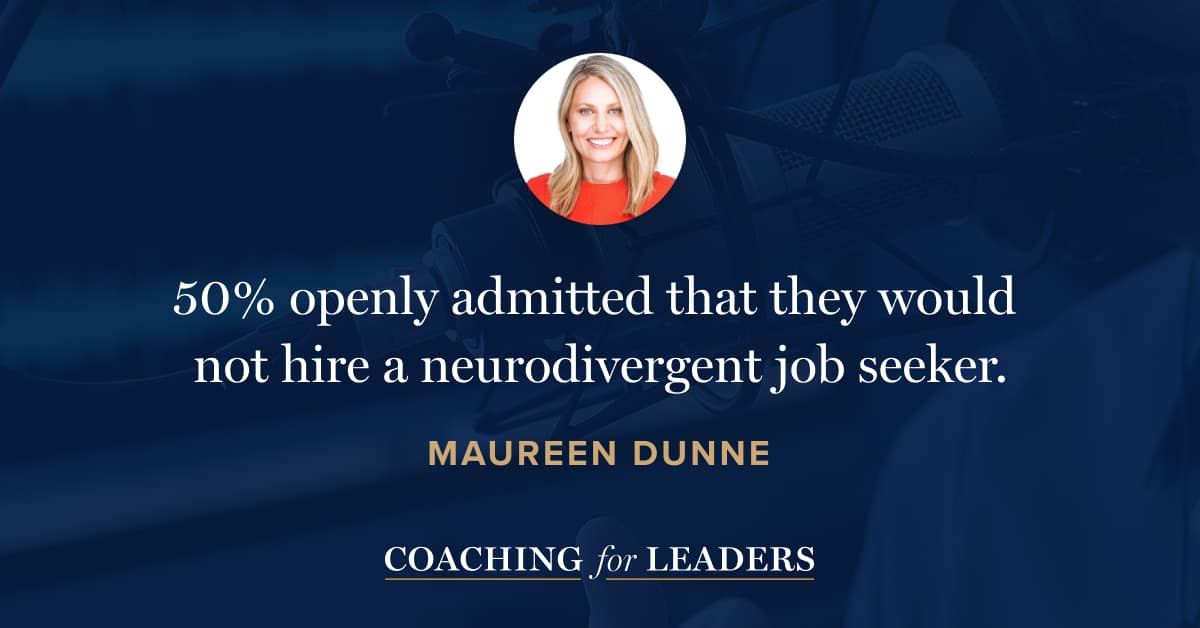Maureen Dunne: The Neurodiversity Edge
Maureen Dunne is a cognitive scientist, neurodiversity expert, global keynote speaker, board director, and business leader with over two decades of experience helping organizations build thriving cultures. She has served as a Senior Advisor to some of the world's top organization, including the LEGO Foundation, Cornell University, and Members of Congress. She is the author of The Neurodiversity Edge: The Essential Guide to Embracing Autism, ADHD, Dyslexia, and Other Neurological Differences for Any Organization*.
We often don’t notice our deeply held biases — and there’s certainly bias against neurodiversity. In this conversation, Maureen and I discuss the research, mindsets, and contributions relevant to neurodiversity. Plus, how neurodiversity can provide an edge for almost every organization.
Key Points
- We often don’t see our deeply held biases. As one example, we assume that north is “up” on maps and globes, even though that’s only a construct.
- Research and estimates vary, but at least 20% of the population is neurodivergent.
- Divergent bees in hives find new sources of honey. Instead of viewing neurodivergence from a deficit-based perspective, use a strengths-based approach.
- Intellectual capability is entirely independent of having a neurodivergent profile.
- Rather than maintaining accommodations for “quirky people,” move towards a norm of universal accommodations that benefit the entire employee population.
Resources Mentioned
- The Neurodiversity Edge: The Essential Guide to Embracing Autism, ADHD, Dyslexia, and Other Neurological Differences for Any Organization* by Maureen Dunne
Interview Notes
Download my interview notes in PDF format (free membership required).
Related Episodes
- How to Begin Difficult Conversations About Race, with Kwame Christian (episode 594)
- Supporting Return to Work After Maternity Leave, with Danna Greenberg (episode 639)
- How to Be a Better Ally, with Lauren Wesley Wilson (episode 675)
Discover More
Activate your free membership for full access to the entire library of interviews since 2011, searchable by topic. To accelerate your learning, uncover more inside Coaching for Leaders Plus.





